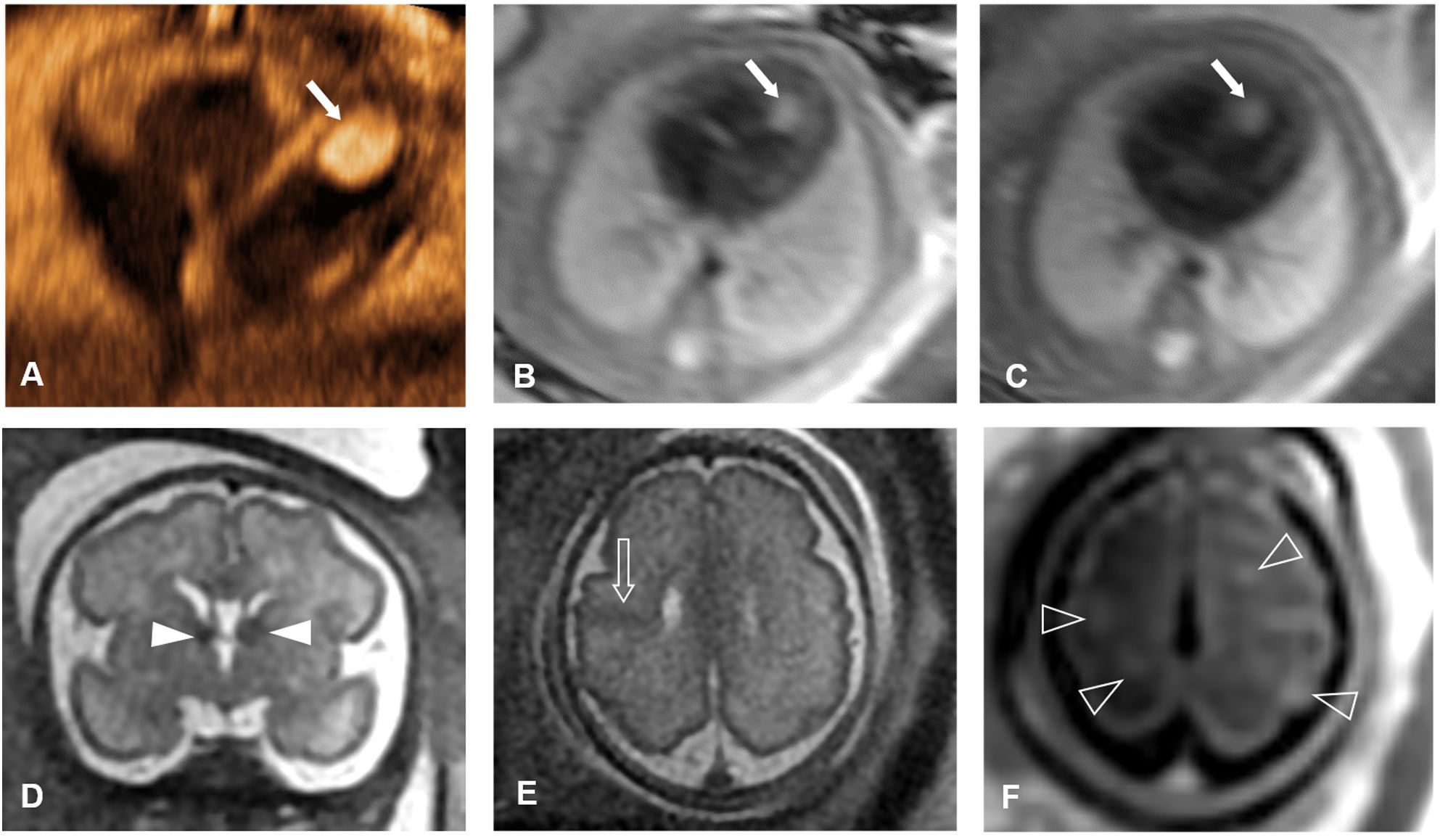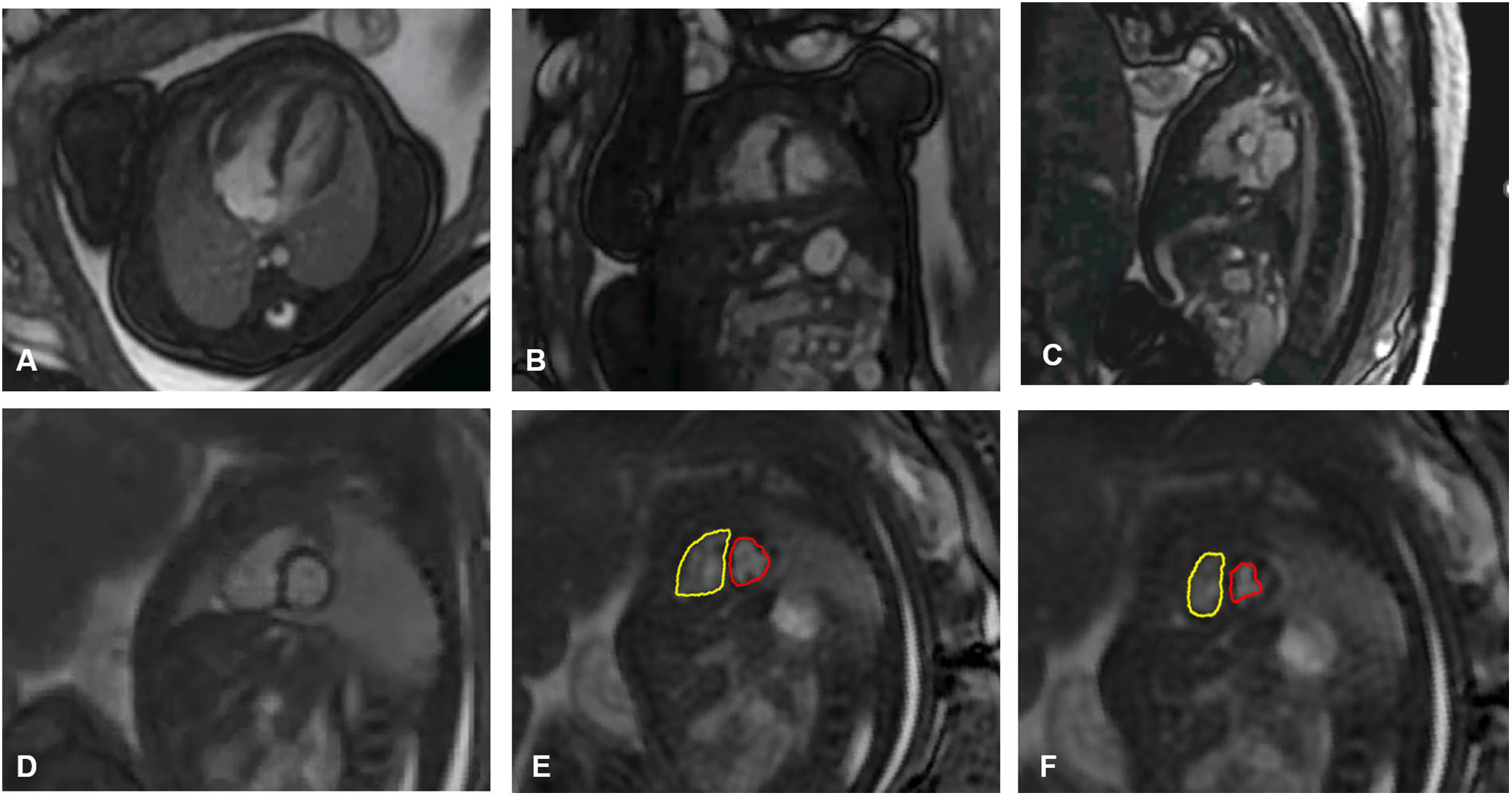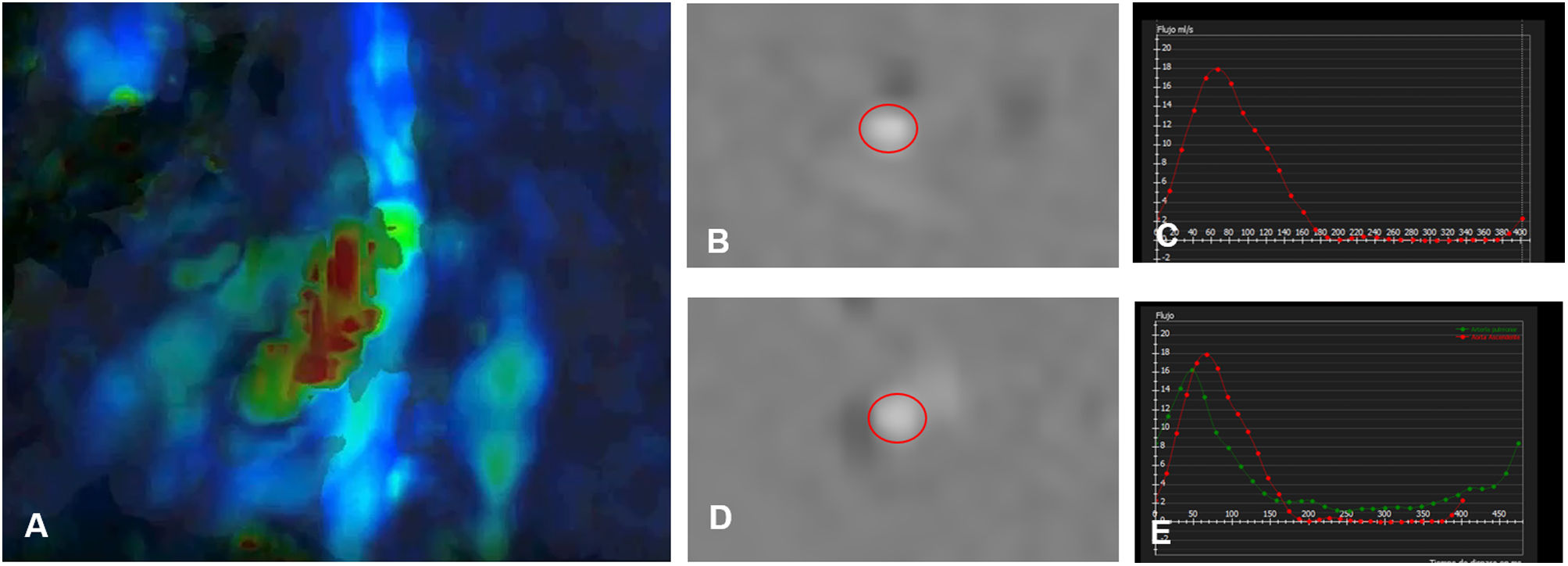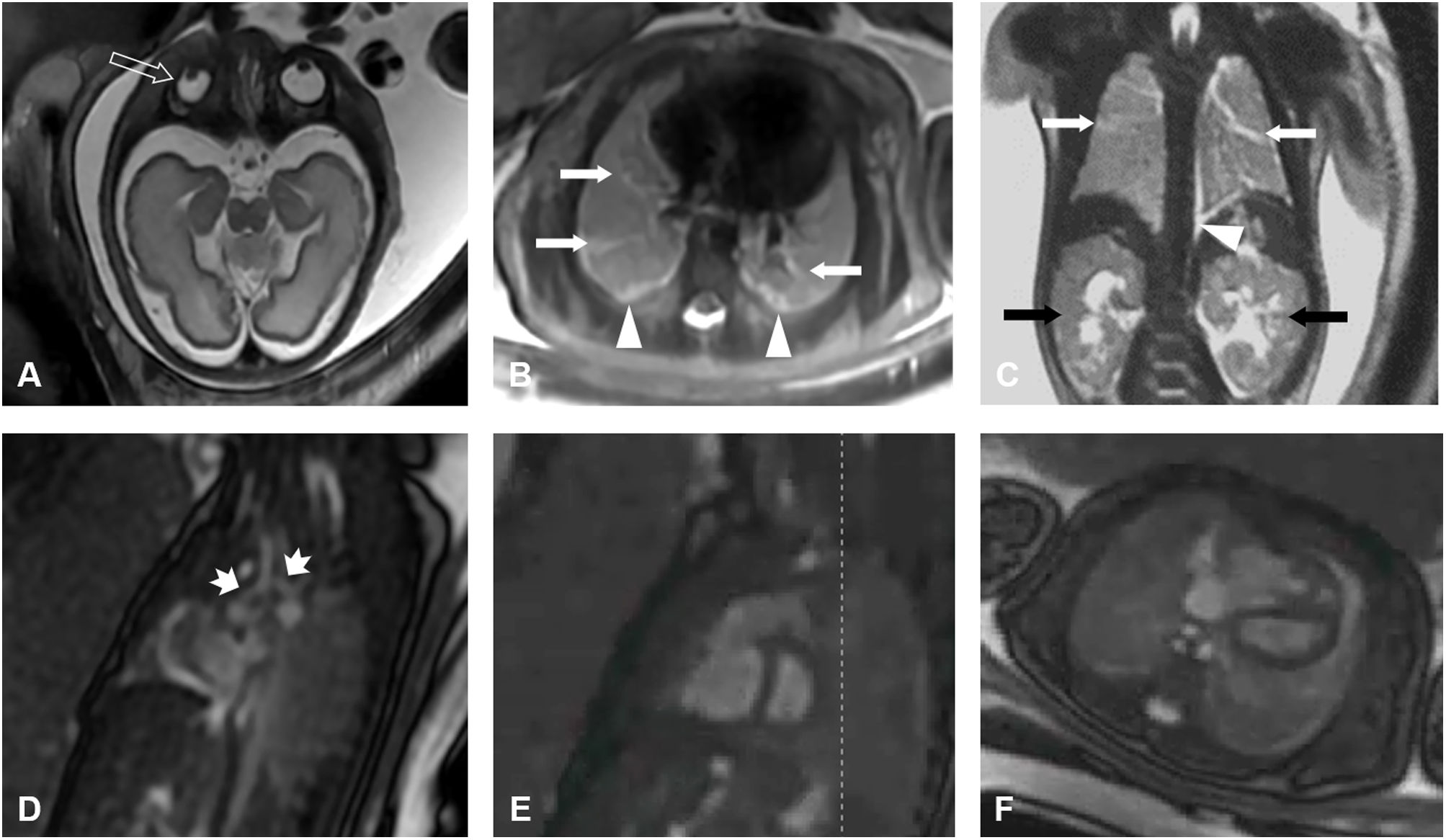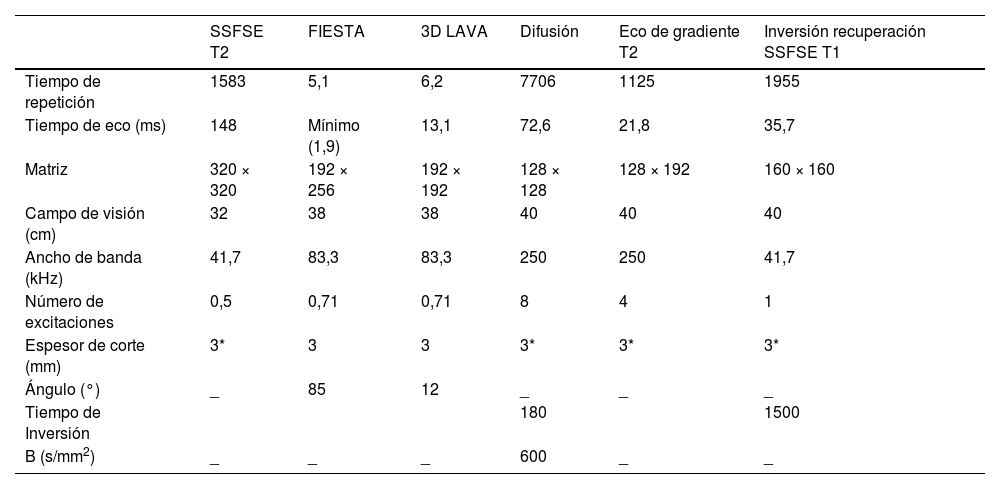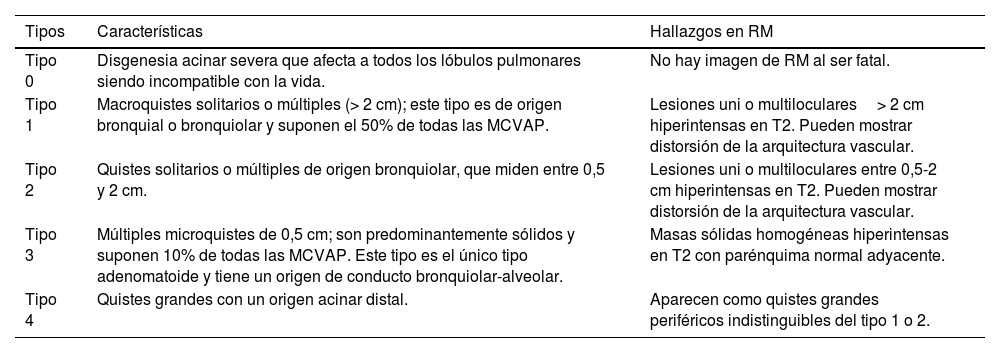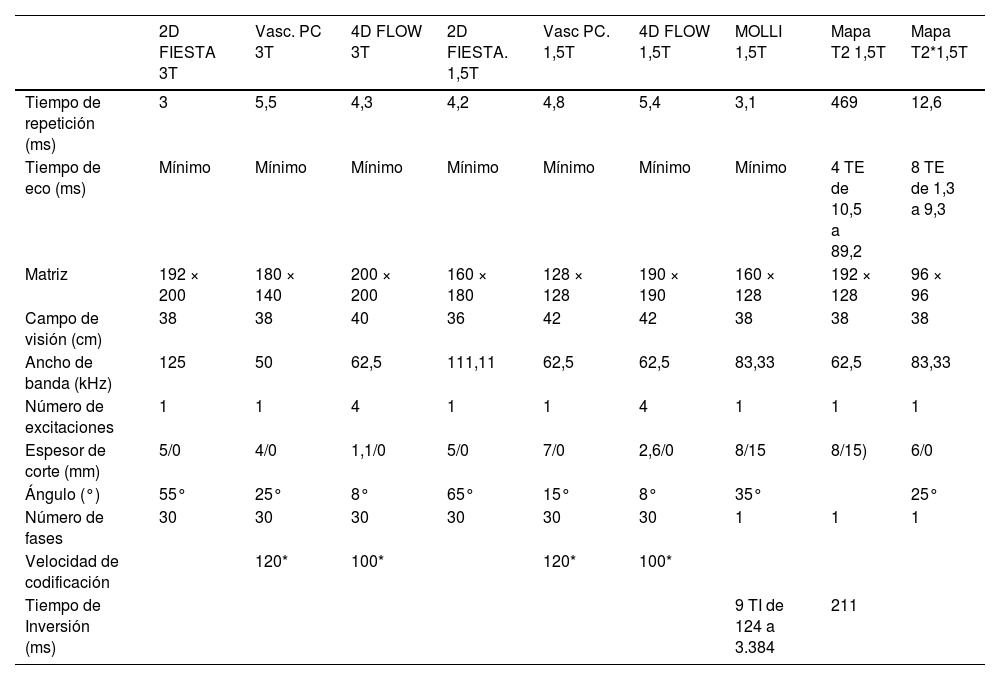La ecografía es la técnica de elección en el estudio de la patología cardiotorácica fetal, pero incluso en manos expertas, tiene algunas limitaciones, sobre todo en casos de mala ventana acústica. La resonancia magnética (RM) torácica fetal es una técnica complementaria en el estudio de la patología torácica que permite, por su caracterización tisular y carácter multiplanar, diagnosticar las diferentes lesiones, valorar el grado de afectación y detectar posibles anomalías asociadas, aportando información útil para el manejo, pronóstico y tratamiento pre y posnatal.
La RM cardiovascular fetal es una nueva herramienta diagnóstica para estudiar el corazón y la circulación fetal que puede ser útil como modalidad de imagen alternativa cuando la ecografía no es concluyente. Además, puede aportar información anatómica y fisiológica útil para establecer un pronóstico o tratamiento médico y para planificar intervenciones cardiovasculares invasivas prenatales.
Ultrasound is the main imaging technique used to assess foetal cardiovascular and thoracic diseases. Nonetheless, even when performed by senior physicians, it has some limitations, particularly in cases of suboptimal acoustic window. Foetal chest magnetic resonance imaging is a complementary technique for studying thoracic pathology. Due to its ability to provide tissue characterisation and its multiplanar capabilities, it can diagnose multiple lesions, assess the degree of involvement and detect possible associated anomalies, providing valuable information for management, prognosis and both prenatal and postnatal treatment.
Foetal cardiac magnetic resonance is a novel diagnostic tool for studying the foetal heart and circulation and it is useful as an alternative imaging modality when ultrasound is inconclusive. Furthermore, it can provide useful anatomical and physiological information for establishing a prognosis or medical treatment and for planning invasive prenatal cardiovascular interventions.












